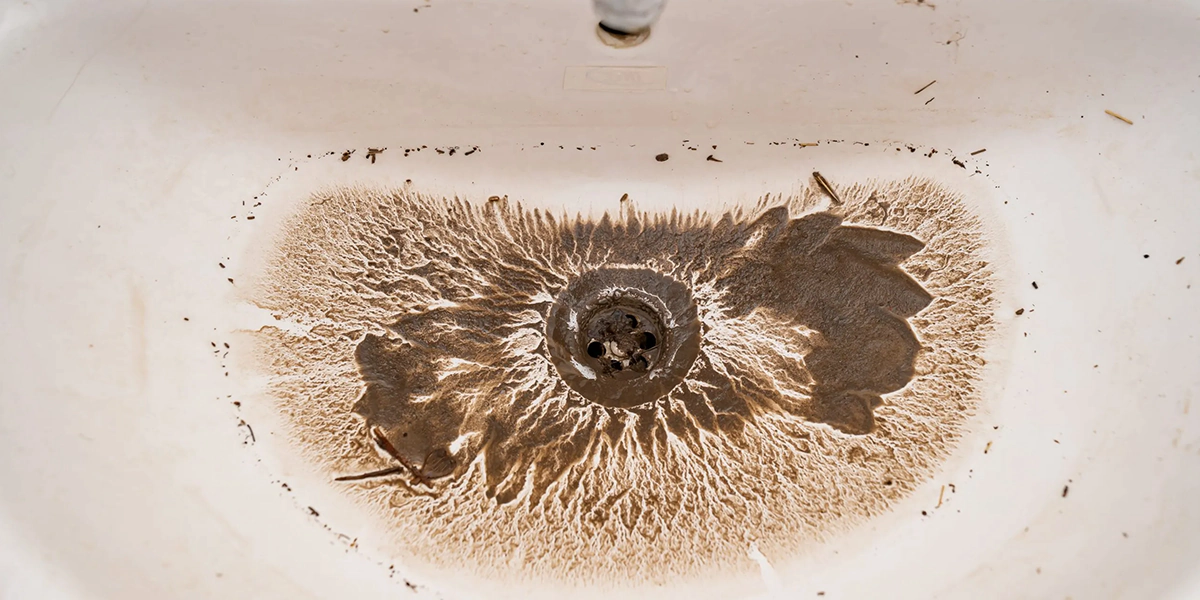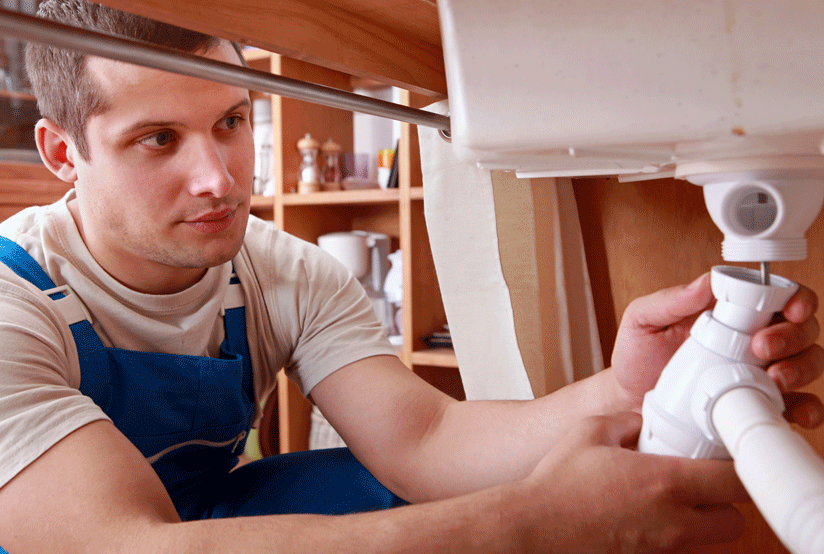Recommended Strategies For Repairing A Slow-Draining Sink
Recommended Strategies For Repairing A Slow-Draining Sink
Blog Article
We have come across the article on 4 Tips to Fix a Slow Draining Sink directly below on the internet and concluded it made sense to write about it with you on this site.

Intro
We have actually all been there: You're cleaning your teeth or cleaning your hands, and you observe the water pooling in the sink. Instead of swiftly swirling down the drain, it remains, turning your once-refreshing early morning regimen right into a mini overload scene. A slow-draining sink isn't just bothersome; it's frequently an indicator of bigger pipes concerns lurking underneath the surface. Fortunately is that the majority of slow-draining sinks can be fixed with a little know-how, a few fundamental tools, and some persistence. Prepared to tackle this job head-on? Allow's roll up our sleeves and dive right in.
Recognizing the Sources Of a Slow-Draining Sink
Prior to you begin poking around in your pipelines, it aids to know what may be causing the downturn. Recognizing the origin makes it simpler to choose the ideal repair.
Devices and Materials You'll Need
The right tools make all the difference. Thankfully, you won't need a fully equipped plumbing's van to get the job done.
Step-by-Step Overview to Repairing a Slow-Draining Sink
Now, let's get into the nitty-gritty. This detailed process will certainly assist you through basic techniques to restore your sink's drain.
Action 1: Remove and Clean the Stopper
Frequently, the stopper (that little plug you lower to obstruct water) is the initial offender. Remove it meticulously and clean off any type of hair or gunk trapped around its base. Rinse it completely prior to putting it back in position.
Step 2: Make Use Of a Plunger to Displace Particles
Got that bettor all set? Position it over the drain and provide it a couple of firm pumps. The idea is to produce suction that can loosen up any type of clog. If you see bits of particles floating up, you get on the ideal track.
Action 3: Attempt a Drainpipe Serpent or Cord Wall Mount
If the bettor does not suffice, it's time to bring out the drain serpent. Carefully feed it right into the drain and twist as you go. You may feel some resistance-- that's likely the obstruction. Keep twisting and drawing till you eliminate the blockage. If you do not have a drainpipe snake, a corrected the alignment of wire hanger can operate in a pinch.
Tip 4: Use a DIY Drainpipe Cleanser
A natural cleaner made from baking soft drink and vinegar can break down residual crud. Pour half a mug of baking soda right into the drain, adhered to by half a cup of vinegar. Allow it fizz for about 15 minutes, after that flush with hot water. This chain reaction typically does marvels for small clogs.
Step 5: Rebuild and Examine the Sink
Placed every little thing back together and run the faucet. Does the water currently swirl down the drain at a decent speed? If yes, give yourself a pat on the back. If not, do not despair-- there are still a couple of more dress up your sleeve.
Vital Tools for Do It Yourself Services
A bettor is your best starting factor. A tiny, sink-sized bettor creates suction that can displace minor clogs. For even more consistent blockages, a drain snake (sometimes called a plumbing professional's auger) works wonders. A set of gloves, a flashlight, and perhaps a set of safety safety glasses are likewise convenient.
Advised Cleansing Solutions
Mild dish soap and hot water can help break down greasy accumulation. A mix of cooking soft drink and vinegar is a time-tested home remedy, and enzymatic cleaners offer an even more environmentally friendly method. Maintain chemical drainpipe cleansers as a last resource, as they can be rough on your pipelines.
Common Wrongdoers Behind Slow Drainage
So, what's obstructing things up? Normally, it's a mixture of day-to-day particles-- think hair, soap scum, toothpaste residue, and remaining food bits. In time, these little bits build up and cling to the pipe wall surfaces, progressively tightening the flow and making it harder for water to travel through. In some cases, mineral deposits from hard water can also add to the gunk, creating the excellent tornado for persistent blockages.
When is it Time to Do Something About It?
If you discover the water draining slower than typical, it's an excellent idea to interfere faster instead of later on. Waiting as well long could bring about complete clogs, unpleasant odors, and even pipeline damage. If the water takes greater than a few seconds to clear out after switching off the tap, consider it a red flag and prepare to place on your DIY hat.
Safety And Security First: Preventative Measures and Preparations
Prior to you launch into unclogging setting, think of safety. You're handling potentially dirty water and particles, so slip on a set of gloves. If you're using chemical cleaners, make certain the room is well-ventilated and comply with the guidelines on the tag.
Safety Gear and Work Space Configuration
Put down some old towels or cloths around the sink location to capture splashes. Clear away any products that might get in your way, like soap dispensers or toothbrush holders. Make certain you have great lights-- get hold of a flashlight if needed.
Alternative Techniques for Stubborn Clogs
Not all clogs are produced equivalent. If your sink still refuses to coordinate, consider these different services.
Baking Soda and Vinegar Method
We currently discussed this, however it's worth keeping in mind again. This gentle, green method is more secure than chemical cleaners and often fairly reliable.
Enzymatic Drain Cleaners
Enzyme-based cleaners use all-natural microorganisms to absorb organic matter. They're an outstanding choice if you're looking to avoid rough chemicals. Simply bear in mind, they might take a bit longer to work their magic.
Chemical Drain Cleaning Company: Pros and Cons
Chemical cleaners can blow up with hard blockages quickly, however they're not without drawbacks. They can produce heat and fumes, damages pipes if made use of exceedingly, and pose environmental risks. Use them sparingly, and always follow the directions meticulously.
Preventive Measures to Maintain Your Sink Flowing
Avoidance is the very best treatment. By adopting a couple of easy habits, you can keep your sink from slowing down in the first place.
Regular Cleaning Up Routines
Wipe down the sink basin and component area regularly. Eliminate hair or food particles before they have an opportunity to wash down the drain.
Preventing Hazardous Materials Away
Reconsider prior to discarding coffee premises, oil, or fibrous veggie scraps down the sink. These culprits hold on to pipe wall surfaces, producing clogs over time.
Regular Maintenance Checks
Set up a quick regular monthly inspection. Run warm water through the sink for a few minutes, taking note of the circulation. If it appears sluggish, act fast prior to it ends up being a full-blown obstruction.
When to Call an Expert Plumbing Technician
Sometimes, despite how tough you try, that block simply won't move. That's when it's time to bring in the pros.
Indications That Show a More Major Concern
If your sink drains pipes slowly despite several efforts, or if you see water supporting in various other components (like your shower or commode), you might have a more serious plumbing issue prowling much deeper in the system.
Stabilizing Do It Yourself Initiatives with Specialist Help
While DIY can conserve you money and supply a feeling of success, there's no shame in calling a professional. A specialist plumbing technician can analyze your whole plumbing setup, making certain there's no underlying damages or long-term problem that can cost you much more down the road.
Contrasting Prices and Long-Term Solutions
Prior to making a decision, take into consideration the big picture. A cheap, quick fix may solve the issue briefly, but purchasing an extra long-term remedy could save you cash and stress over time.
Weighing the Costs of Do It Yourself vs. Expert Solutions
Do it yourself fixes typically set you back little bit greater than the rate of a bettor or a bottle of baking soft drink. Professional services, on the other hand, included a price tag yet may prevent repetitive issues and pricey repair work later.
Buying Top Quality Fixtures and Upgrades
If your sink's layout adds to frequent clogs, it may be worth upgrading to higher-quality fixtures or altering the pipes format. Consider this a financial investment in your home's functionality and convenience.
Final thought
A slow-draining sink can feel like a small inflammation, however it's typically a sign that your pipes needs a little tender loving care. By comprehending the source, employing the right devices and techniques, and dedicating to simple preventive measures, you can maintain your sink flowing freely. And when all else stops working, never ever wait to employ a professional-- your home's plumbing deserves the investment in treatment and maintenance.
Three Common Ways to Fix a Slow Drain
Baking Soda Method
Boil a full pot of water. Measure out cup of baking soda and pour it down the drain. Then take cup of the magical cleansing substance known as white vinegar and drop that down there too. Allow the mixture to fizz in the drain for five minutes as the vinegar and baking soda combine. Now dump in that whole pot of boiling water. This combination of cleaning substances should clear out anything that is causing your sink to drain slowly. If it doesn t...
Zip-It
If the baking soda method doesn t clear out your drain, it may be because a significant amount of hair and/or other debris has collected there and you need to remove it. Purchase a Zip-It tool at any home improvement or hardware store and insert it into your drain. It will catch any collected hair or debris that s blocking the flow of water. Pull it out. If it s got a big clump of hair, etc. on the end, you ve probably got your culprit.
Drain Cleaner
If these methods don t work, there is the standard drain cleaner that you can also buy in a hardware store or even your local grocery store. It s better if you can use a household solution, but these drain cleaners often work in a pinch. They re very simple to use. You generally just dump them in your drain and wait. If even this method is not effective, it may be time to call the plumber.
https://www.mrrooter.com/oneida/about-us/blog/2017/july/three-common-ways-to-fix-a-slow-drain/

As a keen reader on 7 Ways To Fix A Slow-Draining Sink Before You Call A Plumber, I was thinking sharing that segment was really useful. Be sure to pause to promote this blog posting if you enjoyed reading it. Thank you for being here. Please come visit our blog back soon.
Free Estimate Report this page